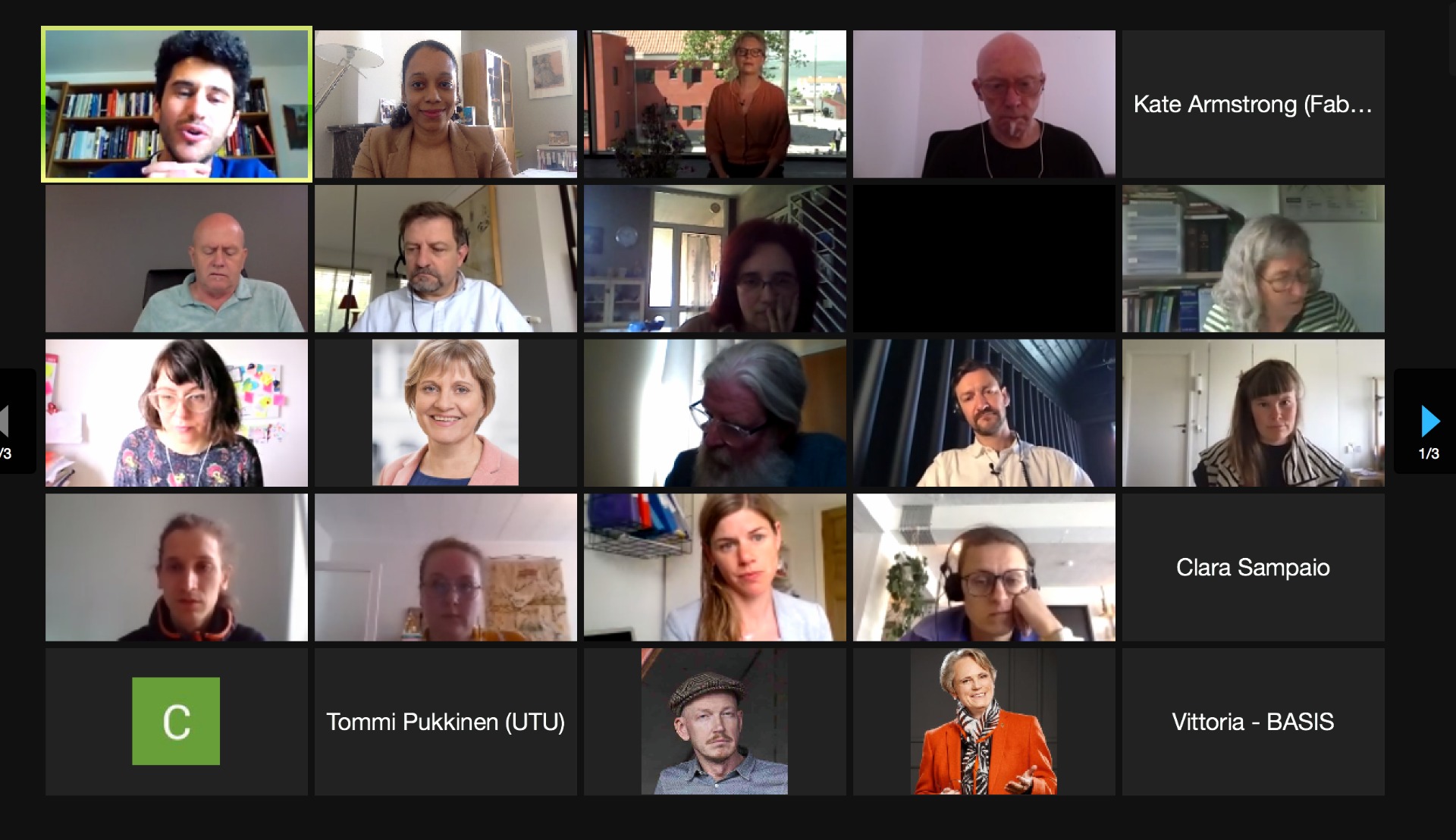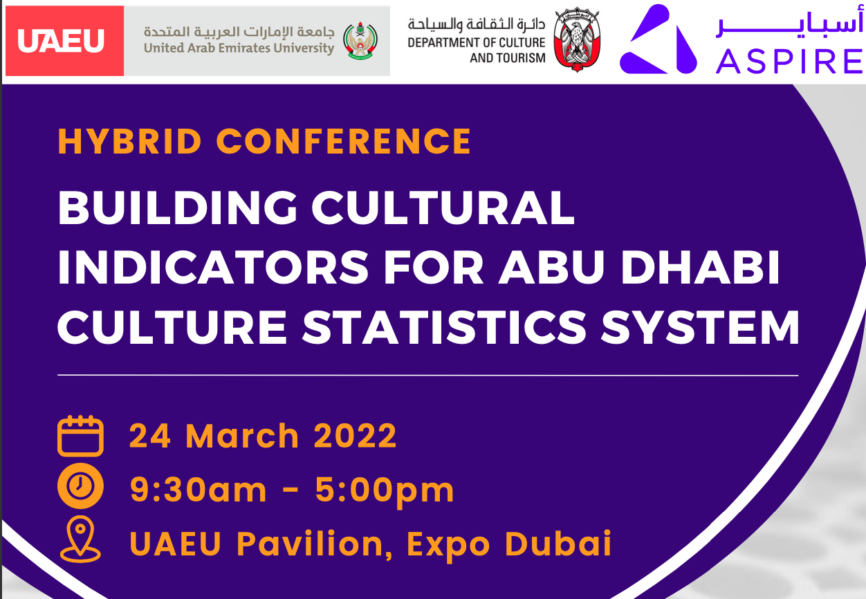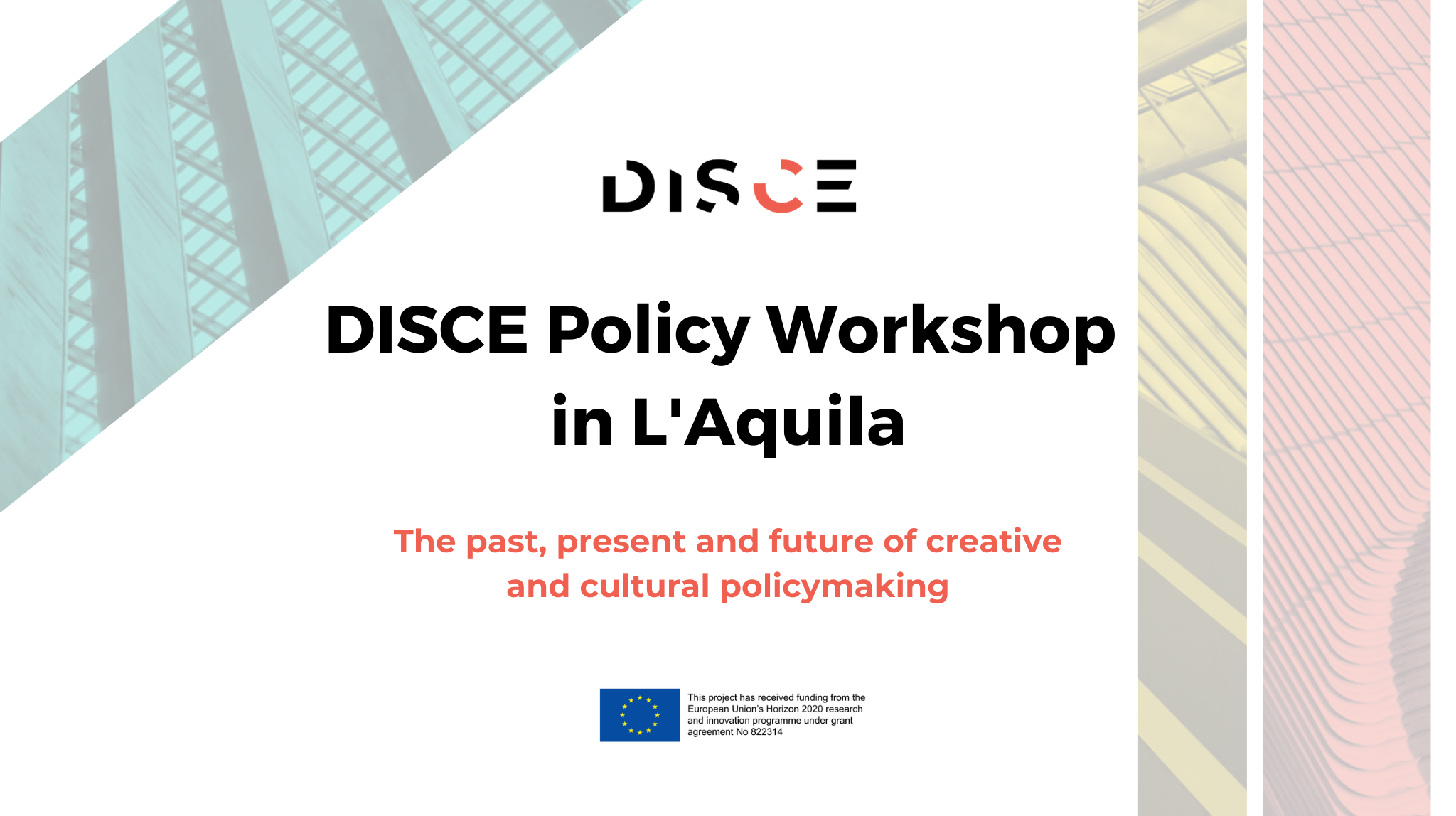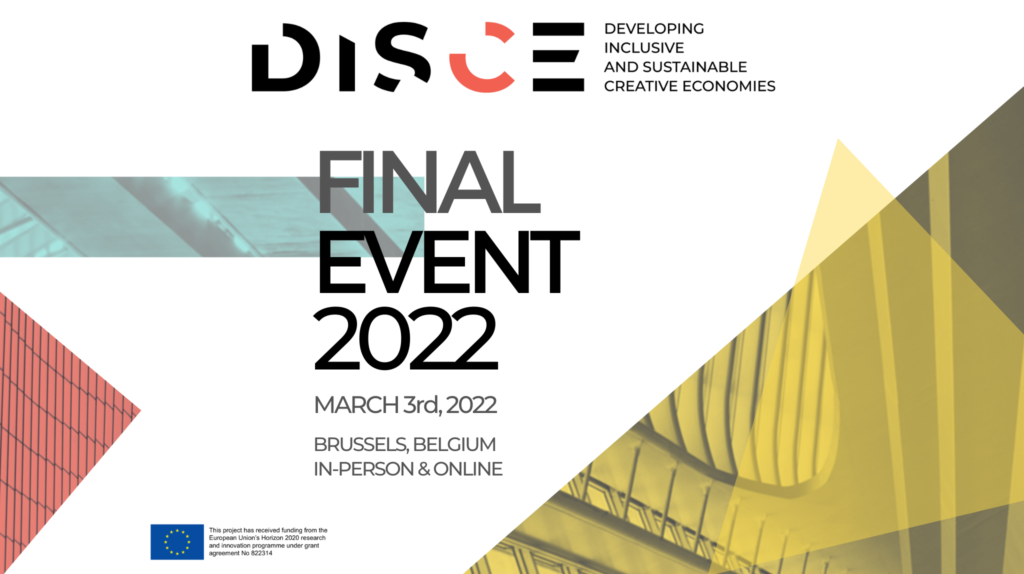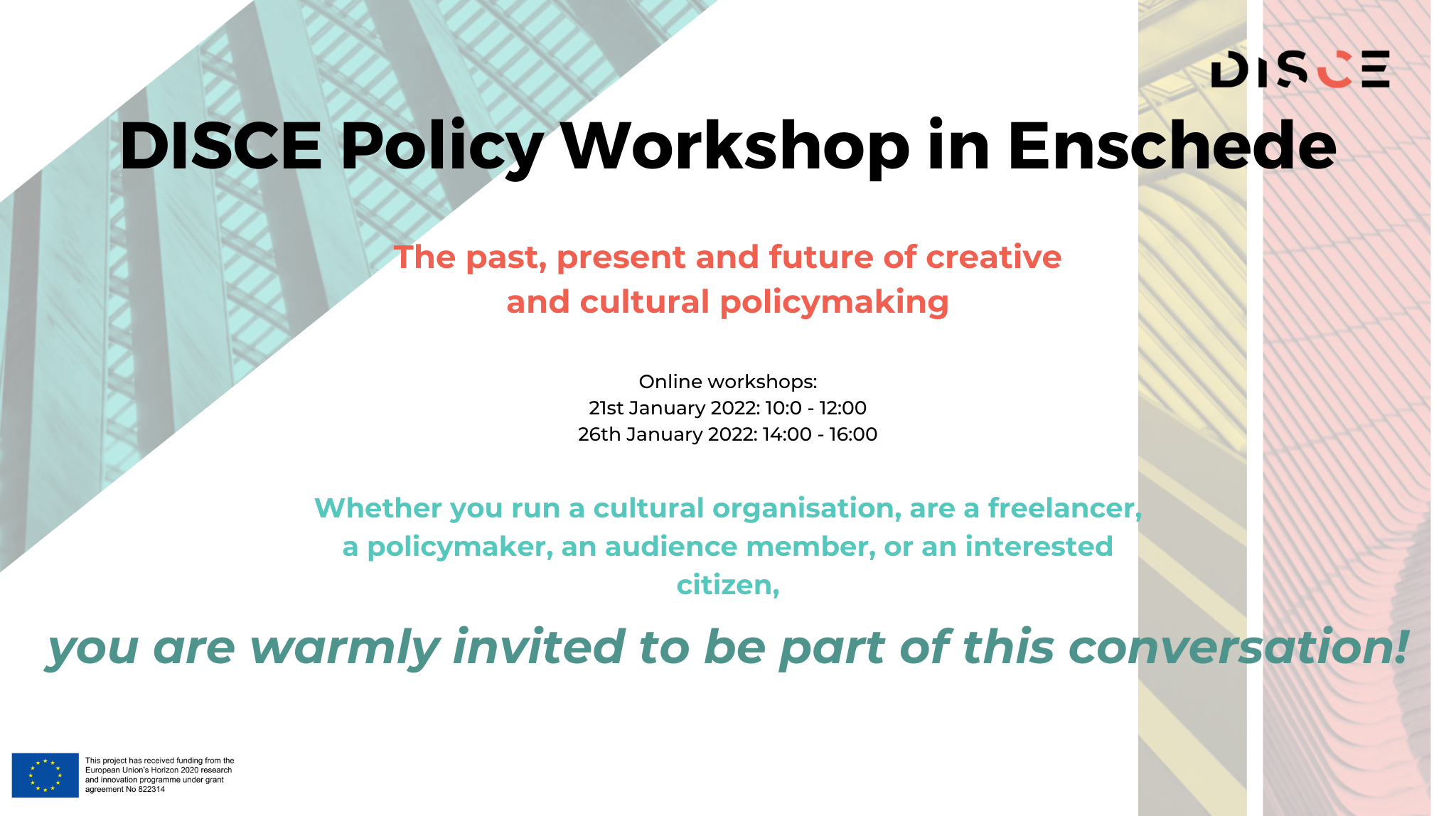The Day of Creative Economies in the EU
Value, care and capabilities for a sustainable and inclusive future
On June 2nd, DISCE project hosted The Day of Creative Economies in the EU: Value, care and capabilities for a sustainable and inclusive future organised by DISCE partner Trans Europe Halles. The event, conceptualised within the Horizon 2020 project “DISCE – Developing Inclusive and Sustainable Creative Economies”, provided an online discussion space to assess the impact of Covid-19 on the cultural sector in Europe and practitioners’ vision, hopes and plans for the future.
The Opening Panel «Cultural Policies in the EU: State of play after C-19» presented a lively and informative conversation about the cultural policy at the EU level joined by Elena Polivtseva (Head of policy and research, IETM), Gabriele Rosana (Policy Director, Culture Action Europe), Catherine Magnant (Head of Unit, Cultural Policy, DG EAC), Prof. Jarna Heinonen (Entrepreneurship, University of Turku) and Prof. Annick Schramme (Cultural entrepreneurship, Antwerp Management School).
The discussion touched on many of the new actions that have been recently launched or are about to be launched in the framework of Creative Europe Programme, Horizon Europe Programme, New Knowledge and Innovation Community by EIT, MFF, Next Generation EU and Recovery plan for Europe. The panelists shed light on the consequences of Covid-19 mentioning the devastating effects of the pandemics for cultural and creative sectors, especially for performing arts and entrepreneurship initiatives.
Elena Polivtseva pointed out that the performing arts sector experienced the biggest lost among all the creative sectors. Given the challenges faced, the use of digital alternatives was indeed helpful although Gabriele Rosana explained: “Digital programming does not compensate for personal programming.“ Despite the difficulties encountered by Creative industries, the panelists shared positive vision of sustainable and inclusive future for culture:
“The pandemic offered the Culture and Creative sectors opportunity to team up and create new strategies.“ – claimed Gabriele Rosana.
Overall, the day provided a great opportunity to discuss current challenges and future prospects for creative economies in Europe.
We thank all the panelists for their valuable contributions and insightful discussion!

